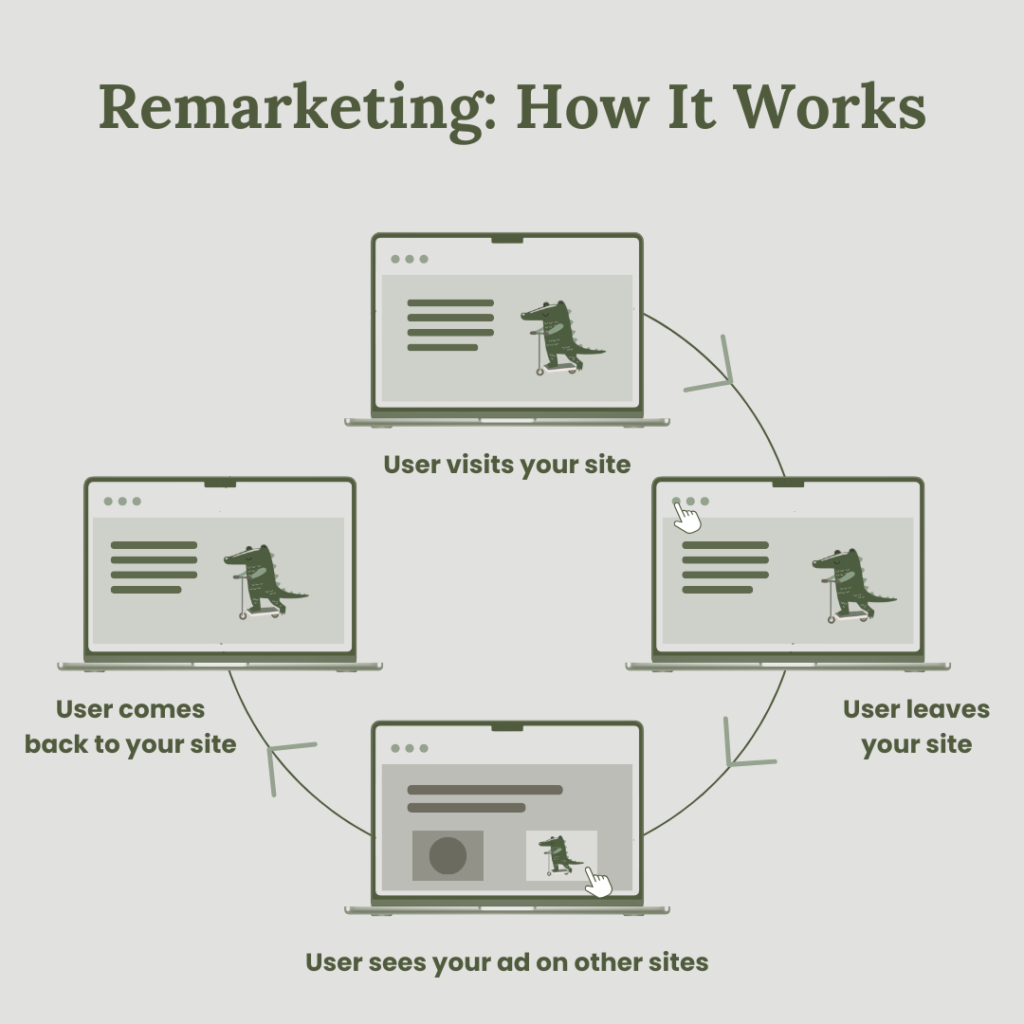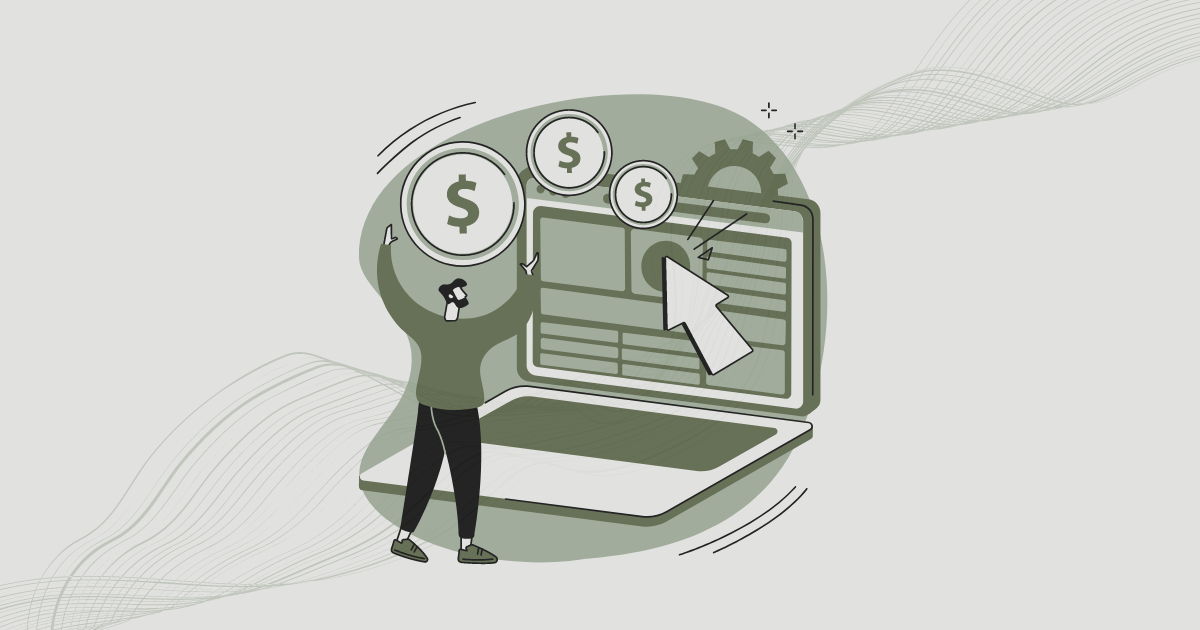What’s PPC Marketing All About? Well PPC, or pay-per-click, is where you dish out cash every time someone clicks your ad. Take a peek at Google or Bing searches – those top-of-the-page ads? Yep, that’s PPC in action!
Ever spotted those top ‘Sponsored’ listings in Google search results? Yep, those are PPC search ads, courtesy of Google Ads, Google’s ad platform.
PPC, sometimes called CPC, may sound similar, but there’s a twist.
Cost per click? That’s what an advertiser shells out for each click. And PPC? Well, that’s the lingo for pay-per-click marketing.
Now, where can you run these PPC wonders?
- Google and Bing searches
- Facebook and Instagram feeds
- Website banners
- YouTube videos, and
- Amazon’s marketplace.
Why Is PPC Marketing Important?
PPC marketing is like a secret weapon for growing your business and drawing in fresh clientele. Picture this: You get to showcase your brand to just the right people and lead them straight to the pages that matter most for your goals. Let’s break down why PPC marketing is such a big deal:
PPC Allows Effective Targeting
PPC marketing allows you to hone in on specific groups by using targeting criteria.
This means you’re talking directly to the folks who are most likely interested in what you have to offer, which saves you money by not wasting ads on the wrong audience.
Plus, each platform like Google Search or Facebook offers its own set of targeting options to help you fine-tune your approach. It’s all about reaching the right folks with the right message at the right time.
Also, with PPC marketing, you can actually hone in on folks who’ve already checked out your website or shown some love to your brand. It’s called remarketing or retargeting, to keep your brand on their radar.

This allows you to effectively remind potential customers of your offerings, prompting them to revisit and ultimately convert.
PPC Ads Are Cost-Effective
When it comes to PPC, you’re the boss of your budget. You get to call the shots on how much you want to spend overall and per click.The best part? You only pay when someone actually clicks on your ad. It’s like having full control over your advertising expenses! Plus, with PPC’s amazing targeting features, you can reach just the right audience without breaking the bank.
Easy To Measure & Track
So, with PPC marketing, you get a lot more data and analysis than you would with traditional marketing. It’s like having a window into how well your ads are doing.
Think about it: with billboards or magazine ads, you’re pretty much in the dark about how many people actually saw or engaged with your ad. But with PPC ads, it’s a whole different ball game. You can easily track how many clicks your ad gets and what people do afterward, like making a purchase.
And the best part? You can check up on your ad performance anytime you want. Just hop onto your preferred platform, and you’ll see exactly how many clicks and conversions your ads are raking in. You can utilize this data to make informed decisions for future PPC marketing campaigns, optimizing your strategies for better results.
Easy To Manage
When you’re running a PPC marketing campaign, you’ve got some serious power at your fingertips. You can tweak your maximum cost-per-click, shuffle budgets around, and change up your strategy on the fly. This level of control means you can fine-tune your campaign super easily and pivot when needed. Like, say, beefing up the budget for those winning ads and hitting pause or making tweaks to the ones that just aren’t cutting it.
Helps Gain Brand Awareness
PPC marketing is not just about clicks and conversions; it’s also about boosting brand visibility. Think about it this way: even if users don’t click on your ads, they still get to see your brand and message. And the beauty of it all? You only pay when someone actually clicks. So, your brand could be catching the eyes of many without costing you a dime if they choose not to click.
PPC vs SEO
So, when it comes to boosting your online presence and driving traffic, PPC marketing and SEO are the real MVPs.
SEO is like your behind-the-scenes hero, working hard to bump up your website’s ranking in those organic search results. That means more eyes on your site without having to pay for each click.
Now, PPC marketing, on the other hand, is like your flashy sidekick, diving into paid search, social media ads, and display advertising to get your brand out there. But here’s the kicker: you gotta pay for each click with PPC.
Here’s the scoop: PPC gets you quick traffic from search engines, while SEO takes a bit longer to climb those ranks organically.
So, if you’re aiming for online success, it’s all about finding that sweet spot where SEO and PPC work hand in hand to drive traffic and conversions.
How Does PPC Marketing Work In Google Ads?
PPC marketing operates through a straightforward process:
- First up, snag yourself an advertising account with Google Ads.
- Next, figure out who you want to reach using keywords and demographics.
- Set your budget and decide how much you’re willing to cough up for each click.
- Get creative! Whip up some compelling copy and eye-catching images or videos for your ads.
- Throw your ad into the auction ring with other advertisers, all vying for the same keywords or target audience.
- Now, the waiting game begins. Let the auction decide whose ads get the spotlight.
- And hey, only pay up when someone actually clicks on your ad.
Sure, there are plenty of platforms and strategies out there, but the basic steps pretty much stay the same.
How The Google Ad Auction Works
So, when someone types in a search, it kicks off a little PPC marketing showdown. Google jumps in with its Ad Rank to decide which ads show up and in what order. Ad Rank takes into account a bunch of stuff:
- How much you’re willing to throw down (your bid amount).
- The quality of your ad in real-time (that’s expected click-through rate, ad relevance, and how good your landing page is).
- The minimum price to get your ad in the game (Ad Rank thresholds).
- How many other advertisers are vying for that spot.
- Details about the searcher’s situation (like where they are, what device they’re on, and when they’re searching).
- The expected impact of your ad’s content and other formats.
Now, let’s talk about another key player: Quality Score (QS).
This is Google’s rating system from 1 to 10 for each of your ads. It looks at:
- How likely your ad is to get clicked (expected click-through rate).
- How relevant your ad is to what’s being searched.
- How good the landing page is that your ad sends people to.
Even though Google doesn’t use Quality Score outright in the ad auction anymore, its parts are still in play. So, it’s smart to keep an eye on your Quality Score to make sure you’re getting the best ad placements and prices.
How To Do Effective PPC Keyword Research
Diving into PPC marketing means rolling up your sleeves for some serious keyword research. It might take up a chunk of your time, but trust me, it’s worth every minute. See, your whole PPC game hinges on those keywords. And if you want to rock Google Ads like a pro, you’ve got to keep tweaking and expanding your list.
Here’s the deal: Don’t just do a quick keyword scan when you launch your campaign. You’ll miss out on a goldmine of valuable, niche-specific keywords that could be sending loads of traffic your way.
Check out our full keyword research guide for all the nitty-gritty details. But here’s the gist of it:
- Be Relevant: Your keywords should match what you’re offering. Otherwise, you’re throwing money at clicks that won’t amount to squat.
- Go Deep: Look beyond the obvious search terms. Those long-tail keywords might be less flashy, but they can add up to big traffic gains. Plus, they’re often cheaper and less competitive.
- Think Big: PPC is a journey, not a destination. Keep tweaking, refining, and expanding your keyword list. The more you grow, the better your chances of success.
Optimizng Your PPC Marketing Campaigns
Once you’ve set up your new ppc marketing campaigns, it’s time to keep a close eye on them to ensure they’re doing their job well. Trust me, staying active in your account is a big factor in how well your campaigns do overall. Here are some tips to help you keep things optimized:
- Keep adding PPC keywords: Think of it like casting a wider net. By constantly adding new keywords that match your business, you’ll expand your campaign’s reach and potentially snag more customers.
- Weed out the bad seeds with negative keywords: Not all keywords are created equal. Weed out the ones that aren’t pulling their weight by marking them as negatives. This’ll help your ads show up for the right searches and save you some cash along the way.
- Keep an eye on the pricey ones: Some keywords might be costing you an arm and a leg without delivering the goods. Take a good, hard look at them and cut loose the ones that just aren’t pulling their weight.
- Spruce up your landing pages: Your landing pages are like the welcome mat to your website. Make sure they’re tailored to match what people are searching for, so when they click your ad, they find exactly what they’re looking for.
- Divide and conquer with ad groups: Break down your ad groups into smaller, more focused segments. This way, you can tailor your ad text and landing pages to match what people are searching for, which should lead to better results all around.
Final Word
In wrapping up, it’s crystal clear: PPC marketing is your golden ticket to online success! Ready to skyrocket your brand’s visibility and reel in those conversions? Explore our top-notch paid media services at The Margator.
Let’s chat about crafting a tailor-made PPC strategy that’s as unstoppable as your business ambitions. Don’t wait another moment to turn clicks into cash—reach out now and let’s make waves together!


[…] of diving deep into the product’s world, you’re using strategies like PPC or platforms like Facebook Ads to get eyeballs on your affiliate links. It’s kind of like […]